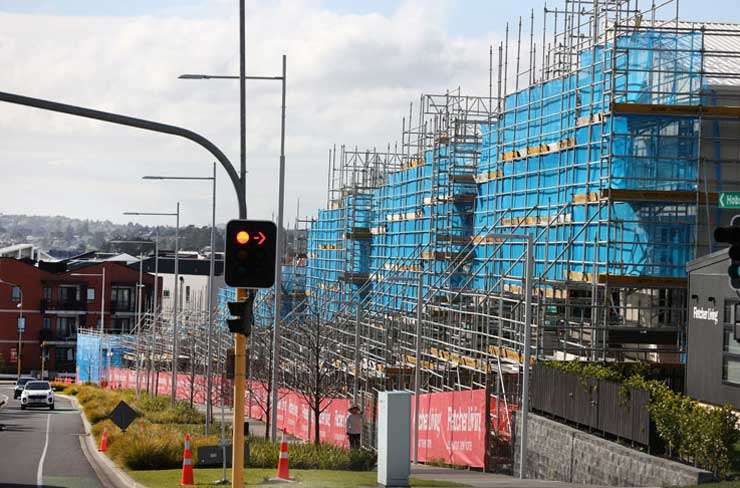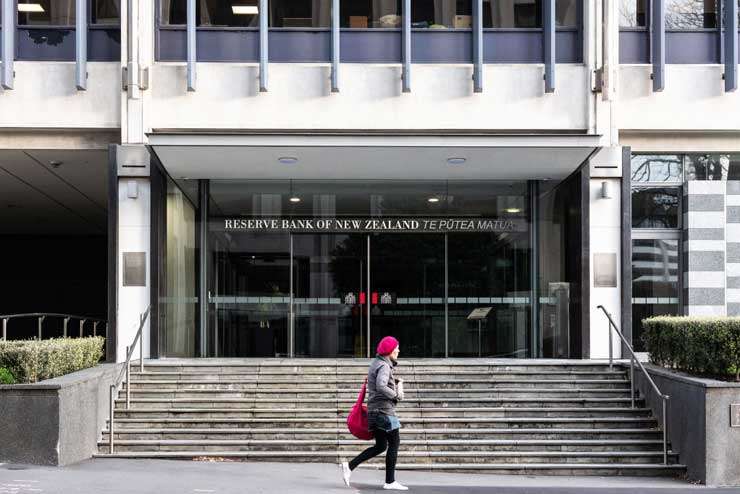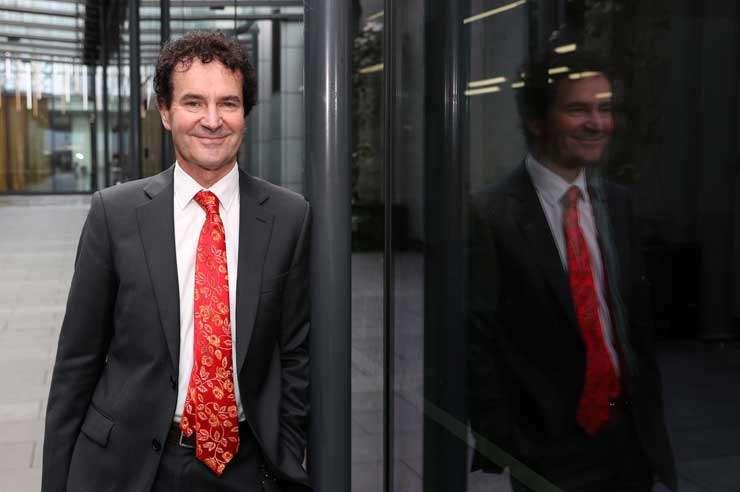Some Kiwis may dream of the property market crashing in order to get onto the housing ladder, but such an event would have big consequences.
The average property value for New Zealand crossed the $1m mark earlier this year after growth of more than 27%, putting the squeeze on first home buyers and raising concerns about housing affordability.
A recent poll by OneRoof and data insights firm Kantar found that two out of five Kiwis think the Government should forcibly bring house prices down to pre-Covid levels – a reduction of more than 30%.
Independent economist Tony Alexander doesn’t for a minute believe New Zealand’s residential property market will crash. Even in the GFC it deflated but didn’t crash like other markets such as the United States and Ireland.
Start your property search
When Covid-19 emerged onto the world stage bank economists predicted falls as high as 30% in the New Zealand property market. The opposite happened. The Reserve Bank of New Zealand did its job, which is to keep the economy stable by influencing inflation and supporting maximum sustainable employment. House prices moved up, not down.
Banks such as Westpac and BNZ are predicting currently the possibility of house price falls. The BNZ in its most resent Markets Outlook research said it expects to see stalling house price appreciation. Economists use the word “correction” for what the public calls a crash. The BNZ said in that research that it expected a modest correction in house prices but added: “A large correction cannot be ruled out.”
No government wants to crash the property market, says Alexander. Slowing down rampant house price inflation or even encouraging prices to move sideways are more sensible options.
To crash house prices a government would have to wound its economy. If the government wanted to do that it could have a good go at that with a number of measures, says Alexander. They read as a what not to do to the housing market:
1. Upset your trading partners
“How would you crash the New Zealand economy?” asks Alexander. “You might upset your major trading partners with some injudicious comments about their political system. One would expect if one was to massively upset one's major trading partners, that there would be loss of export revenue, which would definitely hit the New Zealand economy.
2. Spread foot and mouth disease
“They could also achieve it by spreading foot and mouth [disease] around the country. Because that would obviously not be an optimum outcome for the primary sector or the economy overall.” Foot and mouth disease is a virus that infects cows, pigs, sheep, goats, deer, alpaca llama and other cloven hoofed animals. An outbreak of the disease would have a major impact on rural businesses and severely dampen exports of dairy, red meat and pork products.
3. Kill all deductions on investment properties
Realistically, says Alexander a government that wanted to crash the property market could target investors with legislation. “Remove the ability of investors to deduct anything from the rent in to calculate taxable income. That would mean that investors could no longer claim expenses such as maintenance, property management fees, accountancy charges, insurance rates and other costs. That would have a decent impact on the market. [The Government has] already taken away interest expense. So, remove everything else. Make it immediate. And make it retrospective.”

Houses under construction in Auckland. Increasing supply would have an effect on house prices. Photo / Fiona Goodall
4. Tax investors more
Next the government would want to increase the ongoing cost of owning a property and would introduce a land tax, says Alexander. “Not a stamp duty, but a land tax system. All property owners would have to pay a certain percentage of the property value each year, which [the Government] could use for good social courses or whatever. That would encourage [investors] to offload the properties pretty darn quickly.”
5. Boost housing supply
A sudden flood of new homes onto the market could upset the balance of supply and demand. Alexander says it’s just not possible with builders already working a capacity and other issues such as a shortage of supplies.
Watch out for the Reserve Bank
If the Government was to attempt these measures it would be undermined by the RBNZ, says Alexander. “Because the Reserve Bank, seeing collapsing house prices [and] knowing what the impact would be on the economy, would have to slash interest rates. Probably lower than we have just seen [or] take them negative.
“So, if the Government was going to crash the housing market, not only would they have to make some horribly radical ridiculous tax changes. They would also have to exercise full control over the Reserve Bank. Just like [president Recep] Erdoğan in Turkey. And we see what the outcome is there.”.
Negative equity
One of the big problems with a crash is that people who have bought their homes on a low deposit in the immediately preceding years might find themselves in what’s called negative equity. That means they would owe more to the bank than the house was worth. Banks get nervous of this and can in some circumstances call up the mortgage, forcing the owner out onto the street.

The Reserve Bank is looking to stabilise the housing market not disrupt it. Photo / Getty Images
Another group that can be sitting on very little equity is business owners who have extracted capital from their mortgage to set up or run this business. Homeowners usually find ways to pay their mortgages come what may. Businesses owners may not if the economic fallout from a housing crash affects business.
Be careful what you wish for
In first home buyer land, however, many pray for a quick sharp drop in house prices. The old adage “be careful what you wish for” comes in here, says Alexander. The economic fallout from a house price crash would be far greater than the benefits. Many first home buyers could lose their jobs or businesses.
When other buyers exit the market, first home buyers get nervous, says Alexander. Or they assume the market will fall further and put their hands in their pockets. “The first time buyers that are going in usually with the greatest debt, and so they have the greatest fear of negative equity.

Tony Alexander: “First home buyers have the greatest fear of negative equity.” Photo / Fiona Goodall
“Existing owners (would) be buying and selling in the same market. The first home buyers, (however) would be shocked away from the market for an extended period of time. They wouldn't touch it with a bargepole because they’d expect prices could fall even further.”
A healthy economy
The economy isn’t looking like it’s going to crash any time soon, says Alexander. “We’ve got a record dairy pay out coming this year. We’ve got the eventual return of foreign tourists. We’ve got high levels of construction: residential, infrastructure, a few warehouses. We've got rising job security, as well.
“We've also got insulation to households from the value of the housing stock rising $400bn over the past two years. It's just paper wealth. But (owners think) ‘good god, my house is worth $1.8m and I thought it was only $1.1m. I’m clever and I’m wealthy and I’ll buy another TV’. This is the wealth effect.”












































































